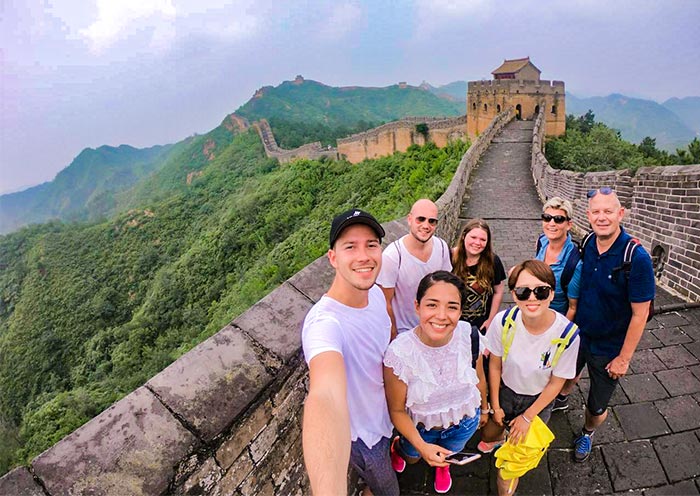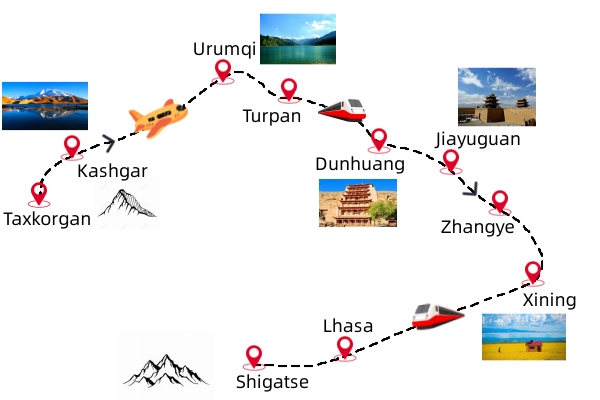20 Recommended Tips To Experience Traditional Chinese Food
20 Recommended Tips To Experience Traditional Chinese Food
Blog Article
Top 10 Tips On Shopping At The Market On The Street In China
1. Arrive earlyTip. Market vendors will give better bargains to their first customers if they arrive at the market earlier.
Advantage: Buying earlier will give you more choices and allows you to bargain for more.
Con: It requires waking up extremely early. This may not fit the schedule of everyone.
2. Bring Cash
Many vendors at street markets will accept cash for payment however mobile payments such as WeChat Pay (or Alipay) are becoming increasingly popular.
Cash payments can help smooth transactions and can give you leverage in negotiations.
Con: Carrying large sums of cash in places that are crowded increases the risk for the theft or loss.
3. Learn Basic Mandarin
Know phrases like "Zhege Qian Duoshao?" (How Much is this?) It's easier to communicate by knowing phrases like "Zhege duoshao Qian?" (How much is this?) or "Pianyi youdian ba?" ("Can you make it less expensive?") can help you communicate effectively.
Pro: Builds rapport with vendors and shows appreciation for local culture.
Con: A limited vocabulary can lead to confusion.
4. Inspection of Goods
Check for any defects or flaws, especially in clothing, electronics and handicrafts.
Pros The benefit is that you get what you get for your money And you don't have to worry about being disappointed.
Pros: Easy to use, but can cause frustration to sellers.
5. Buy Confidently
Don't be afraid to negotiate. It is a common to do so in all street markets. Begin by reducing the price 50-70%.
Pro: Bargaining offers the potential to drastically reduce expenses.
Cons: It's difficult for those not experienced with the process.
6. Beware of counterfeits
Do not buy products that are branded, like bags, watches and electronics. They're usually fake.
Pro: No need to squander money on imitations that are cheap.
Genuine goods are difficult to find, and more expensive.
7. Local Customs to Be Respected
Tip: Learn from the way locals shop, bargain, and interact with sellers to adapt your strategy.
Pro: You will be able to blend in with the community and avoid making mistakes.
Cons: It may take some time to understand the various customs.
8. Keep Valuables Secure
TIP: Avoid pickingpockets by using anti-theft bags and keeping wallets and mobile phones in secure pockets.
Reduces theft risks in areas with high traffic.
Cons: Additional precautions can make you feel confined and uncomfortable.
9. Test before purchasing (Food)
You can sample snacks and dried food items prior to buying them in a variety of shops. This is an excellent method to test the quality.
Pro: Make sure you're satisfied with the taste and freshness of the food you eat.
Con: After offering you the opportunity to try their product, some sellers may push you to make an order.
10. Know the market's primary focus
Tip: Each market has its own specialty for example, such as the Yuyuan Market in Shanghai for souvenirs or Panjiayuan in Beijing for antiques. Prior to your visit do some research on what you would like to purchase.
Saving time and narrowing focus.
Cons: Your spontaneity is limited if your research is rigorous.
The Benefits of Shopping at Street Markets
Discover items that are not available in traditional shops, such as local snacks or handmade crafts.
Street markets usually have lower prices than malls shops or shopping centers.
Cultural Experience: Interacting with vendors and shopping is an immersive method to get a taste of local culture.
The market provides a large variety of products, including clothing, food and souvenirs.
Cons of Shopping Street Markets
copyright goods: There is a good chance of finding fake or inferior items.
The crowds can be overwhelming particularly on weekends and during holiday weekends.
Vendors could push sales strategies. This can make the experience feel like a sigh of relief.
Most purchases cannot be returned or exchanged.
If you are prepared and follow these tips then you'll be able make the best of China's vibrant street markets. Take a look at the most popular find travel ideas for this location for more info including eating in shangri la, shaoxing wine the best yellow wine in china, ancient football in china cuju in ancient china, snow beer the best selling beer in the world, naked marriage in china the most fashionable wedding style for the 1980s, litchi park, eating in guiyang, shopping in nanjing, ganden temple, tips for identifying copyright and more.
Top 10 Tips To Visit Chinese Temples And Avoid Paying Fees
1. Entertainment Fees: The most well-known temples charge fees for entrance, which may be as high as Y=20 to 200 Y. It's possible to estimate your budget when you study the ticket prices.
Pro: Helps you avoid surprises and ensure you have the correct amount of digital or cash.
Con: Unexpected extra costs, such as costs for exhibitions, could arise.
2. Bring cash or a digital Payment
Certain temples only accept cash, or more popular Chinese payment methods like WeChat Pay or Alipay.
Pro: Easy entry with no delays in payment.
Pro: The limited options available to foreign travelers who aren't used to digital payment apps.
3. Photographic Signs are a good place to look.
Tips: Always look for posted signs indicating whether photography is allowed. Many temples limit photography in the sanctuaries of sacred artifacts or within the sanctuaries.
Pro: It deters accidental disrespect or violation of rules.
Cons: The rules might differ in different parts of the temple. This requires extra care.
4. Avoid Flash Photography
Tip: Avoid flash photography in places that permit photography. Flash can cause damage to artifacts and cause disturbance to worshipers.
Pro: Preserves and enhances the temple's surroundings.
Low lighting can result in poor photos.
5. Respect the privacy of worshippers
Do not snap photos of anyone performing religious ceremonies and praying without their permission.
Pro: Respects personal space and cultural sensibilities.
Con: It could limit your ability to capture the temple's atmosphere fully.
6. Be sure to follow the Drone Regulations
A tip: Drone use is generally not permitted near temples. Be sure to check the local laws before deciding to fly an aerial shot.
Pro tip: Avoid paying penalties or confiscation.
Cons: The limited number of angles available for photography makes it difficult to create unique photos.
7. Prepare yourself for additional fees
TIP: Some temples will cost you additional fees to permit your camera if it is professional, such as DSLRs and tripods.
Pro: This guarantees that images are captured with high-quality and legal.
Cons: Increases overall trip costs
8. Dress sensually
Tips: Dress code is essential when visiting temples. Dressing inappropriately could lead to the restriction of entry or even a the refusal of entry.
Pro: Shows respect to the sacred setting and helps you blend in.
Con A: Extra preparation is necessary for the summer heat.
9. Avoid taking photos in crowded areas. Photos
Tips: Try to go early in the morning, or in the late afternoon to stay clear of crowds. You'll be able to get better pictures with less obstruction.
Pro: Improves the quality of your experience and photographs.
Con: Requires adjusting your schedule, which may not always be convenient.
10. You may ask permission If You're Uncertain
Temple staff can be contacted for any questions you may have regarding the rules of photography.
Pro: This helps you avoid mistakes.
Con: Language barriers might make communication difficult.
Pros and cons of observing fees and photography rules
Respect local customs, religious practices and other cultural aspects.
Artifact Preservation: Guards fragile art and structures from destruction.
Positive Experiences: Avoid confrontations with temple personnel or worshippers.
Legal Compliance: Eliminates penalties or fines for breaking photography regulations.
Pros and Cons of Paying Fees for Photography
Costs Increased: Additional fees such as entry fees or photography permits can increase the cost.
The limitations of creativity can prevent you from capturing that perfect image.
Language Barriers - Having difficulty understanding signage or talking to local staff.
Research can be time-consuming. Preparing ahead of time requires extra effort.
If you adhere to photography fees and rules, you can be sure of a a respectful, lawful, and enjoyable visit to China's magnificent temples as well as preserving their cultural and spiritual integrity. Have a look at the top uncover the history of this landmark for blog tips including chinese festival cuisine, chinese kites a phoenix shaped kite, shopping in harbin, ganden temple, shanghai portman acrobatic show one of the best acrobatic shows in shanghai, china built the worlds deepest high speed railway station under the great wall, shopping in suzhou, shaoxing wine the best yellow wine in china, wuzhi mountain wuzhi shan five finger mountain, xiamen and more.